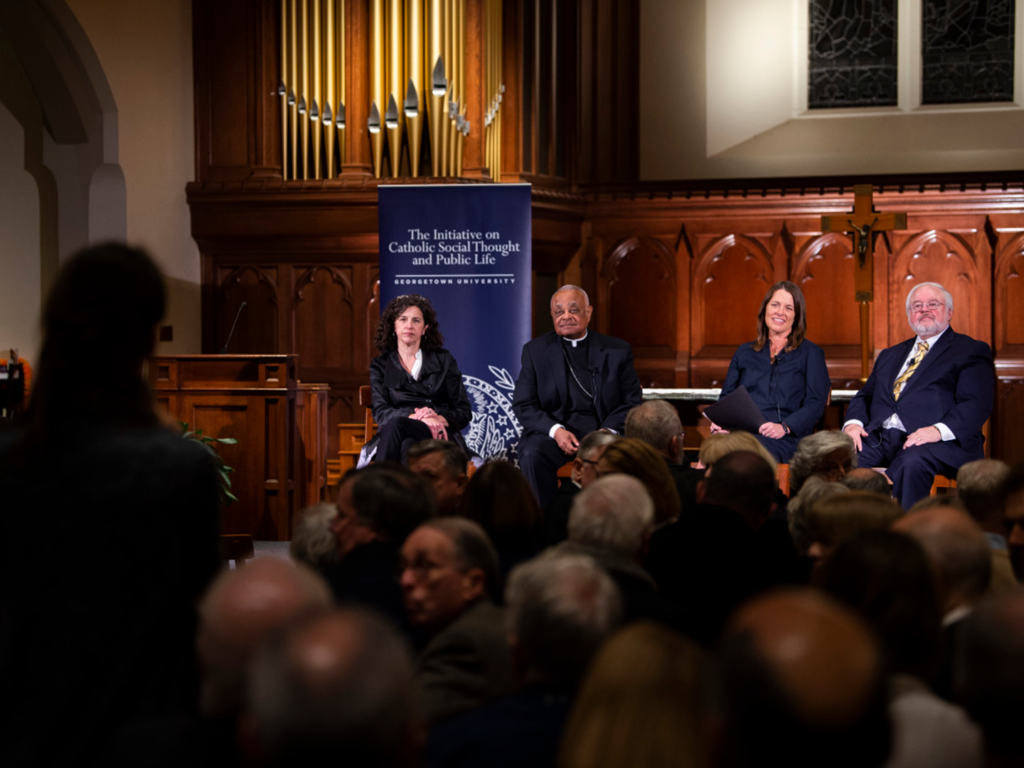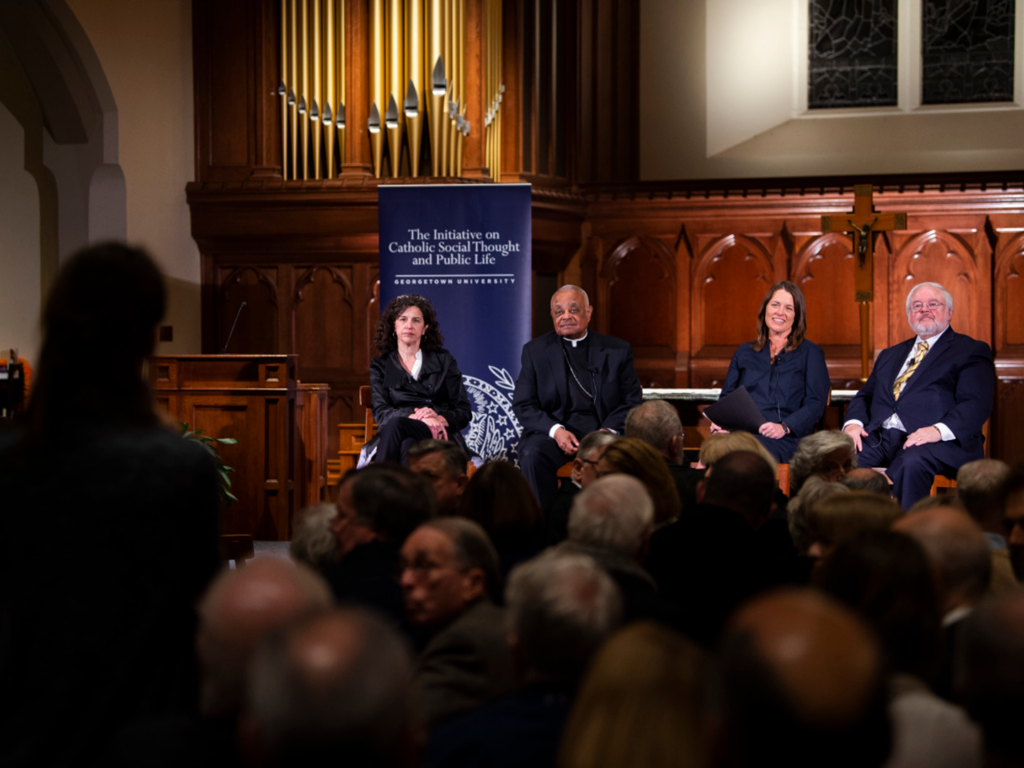The Georgetown University Initiative on Catholic Social Thought and Public Life hosted its 10th anniversary discussion on the leadership of Pope Francis Feb. 28.
Initiative Director Kim Daniels and founder John Carr headlined the event, which began with an introduction by Georgetown University President John J. DeGioia (COL ’79, GRD ’95) before moving into a conversation with other Catholic leaders. The event probed the leadership and legacy of Pope Francis, the first Jesuit leader of the Catholic church, and participants discussed the Pope’s challenges, triumphs, shortcomings and message while looking toward his future aspirations.
Panelists included Cardinal Wilton Gregory, the archbishop of Washington, D.C.; Sr. Norma Pimentel, a nun and humanitarian activist; E.J. Dionne, a professor in the Georgetown University McCourt School of Public Policy and a columnist at The Washington Post; and Helen Alvaré, a Catholic social activist and professor at George Mason University’s Scalia Law School.
Daniels said a profound experience in her journey with Catholicism was during the announcement of Francis’ election in St. Peter’s Square in the Vatican City, a city-state located within Rome, Italy, that functions as the headquarters of the Catholic church.
“So many people from around our global church were there in St. Peter’s, and I can’t tell you how it was before that white smoke went up,” Daniels said at the event. “It was joyous; it was raucous; there were people singing.”
Gregory said he could see Francis’ character come through after his papal inauguration, when Francis ate lunch with employees in the workers’ cafeteria in the Vatican City.
“Early on in his ministry, he had lunch with some of the Vatican workers,” Gregory said. “He got his tray, and went and filled his tray and sat down with the workers. I don’t think that’s happened with a lot of his predecessors. He demonstrates that accessibility that I think wins the hearts of a lot of people.”
While official writings from the Vatican and popes in particular are often hard to comprehend for readers outside of the church, Gregory said the writing of Francis is clear to the average reader.
“He writes in a style that people can understand,” Gregory said. “They don’t sound like prior Vatican documents. They are rich, but they are accessible and he’s accessible.”
Pimentel, who was recognized by Francis for her work aiding refugees at the border between the United States and Mexico, said Francis’ emphasis on hands-on activism speaks to efforts of inclusivity in the church.

“He said we have to be one church, and the only way to be one church is to kind of get messed up and dirty, and get out there,” Pimentel said. “Get out there and bring everybody in. I think his message of inclusiveness and encountering the other is really what we all must do.”
Alvaré said Francis promotes fellowship with underserved groups who need prolonged assistance, including immigrants, those in poverty and young people disillusioned by religion.
“When he asks for accompaniment, it’s not for an hour,” Alvaré said at the event. “He’s talking about people who need a long time and require us to change our way of life. You can’t live normally, according to our American standards, and do what he’s asking us to do.”
Dionne said that the actions of Francis hold up when compared to the message of the late U.S. Representative John Lewis of Georgia, who was known for encouraging Americans to engage in good trouble, or trouble necessary for impacting social change.
“I think in the tradition of John Lewis — good trouble — he is a troublemaker,” Dionne said at the event. “He challenges all of us. He attacked the spirit of careerism in the church, called it a form of cancer.”
Pimentel said that Francis taps into a human element that serves as a unifier in a time of staunch division.
“That’s why he speaks about breaking down barriers, coming outward and actually moving and bringing others in,” Pimentel said. “Bringing those who are at the peripheries, those who are at the margins, those who have been left out because we have become a church that is so comfortable in a little bubble that makes us okay, and we have left people out.”






















